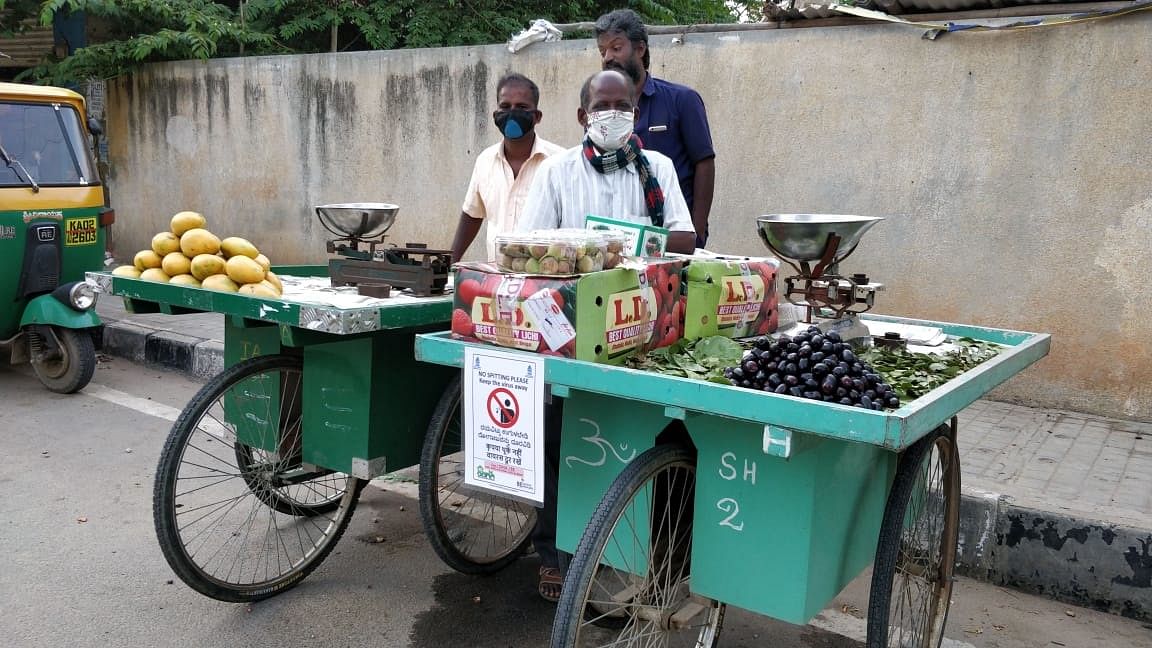
India has a spitting problem, and no amount of rules has helped change this. With Covid-19, it seems like a good time for the country to quit.
Several organisations in the city have realised this and joined hands to make a difference. Led by Beautiful Bengaluru, a campaign called ‘StopIndiaSpitting’ has been underway since March.
Laws have been on paper and in 2013, a penalty was imposed for spitting, among other acts of nuisance, by the Karnataka Municipal Corporations (Amendment) Bill, 2013, and assented to by the then governor H R Bhardwaj. However, this is yet to be enforced.
Odette Katrak, co-founder Beautiful Bengaluru says, “In March, the initial Covid-19 preventive lists from both GoI and GoK did not include spitting, which was concerning. We jumped in with a petition to the PM that got over 41,000 signatories. It was instrumental in the Union Home Ministry declaring spitting as a punishable offence under the Disaster Management Act.”
“This habit of spitting is something that the country has been saddled with for generations. We are a point where every single person is aware of this dreaded virus, and we must use this fact to bring about a much-overdue change,” says Odette.
She cites the example of the 1918 Spanish influenza outbreak and the 1940s TB outbreak, when campaigns against spitting in public helped most people quit the habit.
“People wear masks yet they remove it and spit on the road. There is a clear gap in awareness, which is why we all need to spread the message that spitting can spread coronavirus, and mask alone cannot protect them,” says Odette. The campaign encourages everyone to spread the message, not just lawmakers or campaign volunteers.
Signs specifically linking spitting and Covid-19 are coming up across the country in different languages, through campaign partners and petition signatories.
In the city, signs have popped up in commercial areas like Kasavanahalli, Rajajinagar and Richmond Road, among others.
Influencers like Dr Devi Shetty, police commissioner Kamal Pant, Kannada film icon Puneeth Rajkumar have lent weight to the campaign with video appeals.
Messages are also going out through community radio, posters, videos, checklists accessible across the country. The group has also networked with many NGOs and civic/community partners to make this a nationwide effort.
Joint effort
Hasirudala, a social enterprise that is focused on creating better livelihoods for the waste-picker community, has also joined in on the movement. With the onset of the pandemic, the group has been working with community health facilitators to identify people with comorbidities, or are showing symptoms of Covid-19.
This allows them to ensure that they get the testing and treatment if required. In a bid to ensure that awareness about how the virus can spread, the group decided to adopt the movement.
“If we told them a year ago to stop spitting, they wouldn’t listen to us. Spitting, for many, comes as naturally as breathing. This is in addition to the fact that many have the habit of chewing tobacco or paan,” says Nirmala Shekhar, project manager and coordinator.
Making people more conscious that they are committing the act is a crucial step. Focus on its health impact is discussed widely.
Mohammed Ummer, coordinator, Mercy Mission, says that the effort has to be consistent.
“Initially, most people in vulnerable areas that we work at were sceptical about the virus and thought it was some conspiracy.”
“The increasing cases and casualties have opened their eyes, but many need an extra push to make these changes,” he explains.
They have organised street plays that harp on the importance of wearing masks, hygiene, social distancing and avoiding spitting.
“You have to send the message across in a non-threatening way,” he says. The group has also set up over 40 Covid booths where they carry out free screening for vulnerable groups.
During the screenings, they make it a point to harp on the importance of wearing a mask and not spitting in a conversational manner.
The effort, he adds, is important, because these changes cost nothing, but would have the biggest impact in clamping down on the further spread of the virus.